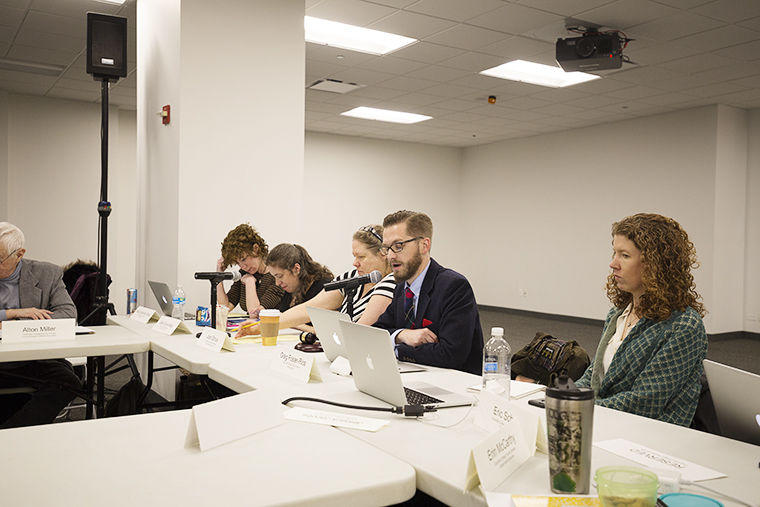Faculty Senate approves new major proposals
The Faculty Senate approved three new majors and a new minor Dec. 11 to be sent to the Provost for approval and discussed a new faculty workload policy.
December 14, 2015
The Faculty Senate at its Dec. 11 meeting approved proposals for three new majors and a new minor, which will be sent to the Office of the Provost for approval.
Previously, the Academic Affairs Committee formed four subcommittees of three members each who reviewed the proposals and later discussed and voted on the recommendations as a whole committee during its Dec. 4 meeting.
The four programs would be housed in the School of Media Arts.
The four approved programs include bachelor’s degrees in animation and interdisciplinary documentary in the Cinema Art + Science Department, a bachelor’s in social media and digital strategy in the Communication and Media Innovation Department and a minor in user experience in the Interactive Arts & Media Department.
Jeff Abell, an associate professor in the Art & Art History Department, said courses for some of the proposals already exist, so the new programs would allow students to earn degrees in majors they are already taking classes for.
“This simply acknowledges the focus of [students’] work,” Abell said. “It is basically just a rearrangement of what is going on.”
The Faculty Senate also continued developing a faculty workload policy that would create a points system to value faculty service “that would fit the culture of Columbia without changing it,” said James Van Manen, an associate professor in the American Sign Language Department.
The Faculty Senate plans to vote on the proposal during its next meeting in February, but Van Manen said he does not think it is feasible because of the complexity of the system and procedure that still need to be worked out.
“There is no point system on the books,” Van Manen said. “We can’t rush trying to put something together.”
Van Manen said he wants to start applying the thinking structure of the policy with a “soft implementation” that would slowly ease the college into the policy during the next academic year, which will allow any issues to be solved.
Jeffrey Meece, associate vice president of Enrollment Management, visited the Faculty Senate and discussed four things the Office of Enrollment plans to focus on, including improving accuracy of admissions, processes and systems; implementing strategic recruitment practices; coordinating customer service; and improving the campus experience.
Currently, the college’s “melt rate”—how many students commit to enroll at a given college but do not actually attend the school—is at 19 percent, which is twice the national average, Meece said. He said he hopes to create a “concierge” process for admitted students and train the entire admissions team on how to better meet prospective students’ needs.
“Something you are going to see over the next few years is that [traditional freshmen] are not going to be the only targeted group we are going after,” Meece said.
With the Fall 2015 drop in new undergraduate and graduate enrollment, the admissions department wants to strengthen current graduate programs and build new online programs along with implementing a target recruitment philosophy, Meece said. He also said he plans to increase admitted students’ participation in the college’s hosted events to engage more students and increase enrollment.








